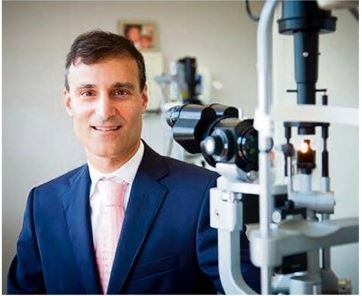Screening and early management of eye complications are essential to prevent permanent visual loss says Eye Surgeons Bendigo's Dr Farokh Irani.

Diabetes is a disorder of glucose metabolism resulting in chronically elevated blood sugar levels.
How does it affect the eye?
The chronically elevated blood glucose damages blood vessels that supply the retina.
These small blood vessels can occlude and hence can't supply the retina with oxygen.
They also become leaky; fluid, fat and blood then escapes into the macula (central portion of the retina), which severely degrades vision. In severe cases, new very fragile blood vessels grow then haemorrhage causing retinal detachment and complete blindness.
Diabetes also accelerates the formation of cataracts and is a risk factor for glaucoma both of which can cause visual impairment.
Regular eye examinations will determine the presence and extent of eye disease. This is important as early intervention prevents further deterioration and can rescue lost vision if caught early.
How is it treated?
Initial steps to tighten blood sugar levels, blood pressure, blood lipids, weight loss, cessation of smoking and exercise are encouraged.
Laser: to treat fluid at the macula or to prevent new blood vessels growing,
Injections into the eye with drugs: arrests new blood vessels and dries up excess fluid in the macula.
Surgery: needed in advance cases to remove blood from the eye or to treat the retina that is being pulled off from the back of the eye.
Eye Surgeons Bendigo is full equipped and expert in monitoring and treating diabetes related eye diseases with the latest diagnostic and treatment technologies.

